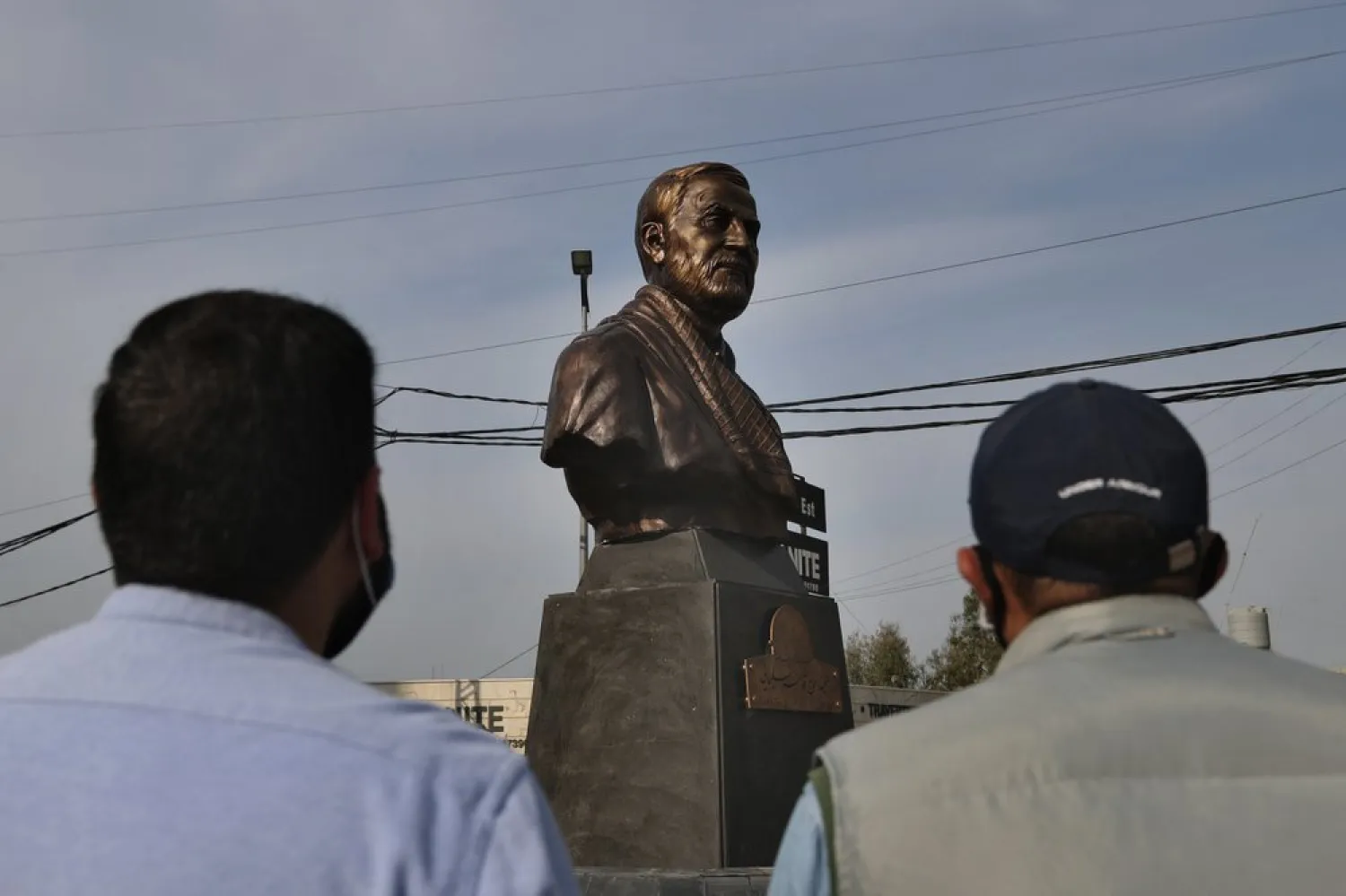The unveiling of a large statue in Beirut of an Iranian commander killed by the US last year has sparked indignation among many in Lebanon — the latest manifestation of a growing schism between supporters and opponents of the Iran-backed group Hezbollah.
The bronze bust of Gen. Qassem Soleimani was erected Tuesday by the Ghobeiry municipality in a Hezbollah stronghold near Beirut's airport to commemorate the slain general's supportive role in Lebanon's wars with Israel. Soleimani, the architect of Iran’s proxy militias in the Middle East, was killed in a US drone strike near Baghdad airport a year ago.
Many Lebanese, mostly critics of Hezbollah, took to social media to lambast the celebration of a foreign military leader in Lebanon's capital. “Occupied Beirut,” tweeted one Lebanese, Amin Abou Mansour, who posted it with the hashtag #BeirutFree_IranOut.
Others lamented what they described as the cultural hegemony of the militant Hezbollah and its ally, Iran. Wael Attallah, a Lebanese Canadian, tweeted: “This is a cultural aggression being imposed on Lebanon. Hundreds of thousands of Lebanese today feel violated and powerless. The Schism is getting wider day by day, little by little.”
One Lebanese media personality said she received death threats after her criticism on social media of the new statue.
The criticism has triggered a backlash from supporters, who started a Twitter storm with the hashtag: #Soleimani-is-one-of-us.
The killing of Soleimani and a top Iraqi militia leader last year at Baghdad’s airport significantly ratcheted up tensions in the region, sparking outrage among their supporters and bringing Iran and its allies and the US close to an all-out conflict. Iraq and Hezbollah, Iran’s closest allies in the region, have called for the expulsion of US troops from the region and threatened to retaliate for the killing of the two commanders.
The fallout over the Soleimani statue reflected deepening divisions in Lebanon.
A report in the online site Al-Modon called the bust in southern Beirut a “symbol of (an) Iranian mandate” in Lebanon that replaces symbols of a bygone era when pictures or statues of Egyptian leader Gamal Abdul-Nasser and Syrian President Hafez Assad were prevalent.
The bronze bust about 3 meters (10 feet) high is located in a roundabout on a street named for the Iranian general and is linked to a highway named after Iran's Supreme Leader Khomeini
Giant posters of Soleimani were also installed along the airport highway and in streets and neighborhoods allied with Hezbollah, in some instances sparking angry reactions from locals.
In the eastern Bekaa highway to the Brital area, unidentified men torched a billboard of Soleimani on Sunday, according to the local LBCI TV channel.
The following day, other portraits of Soleimani were burned north of Beirut in Nahr al-Kalb by men who brandished the portraits of President Bashir Gemayel, who was assassinated in 1982.









